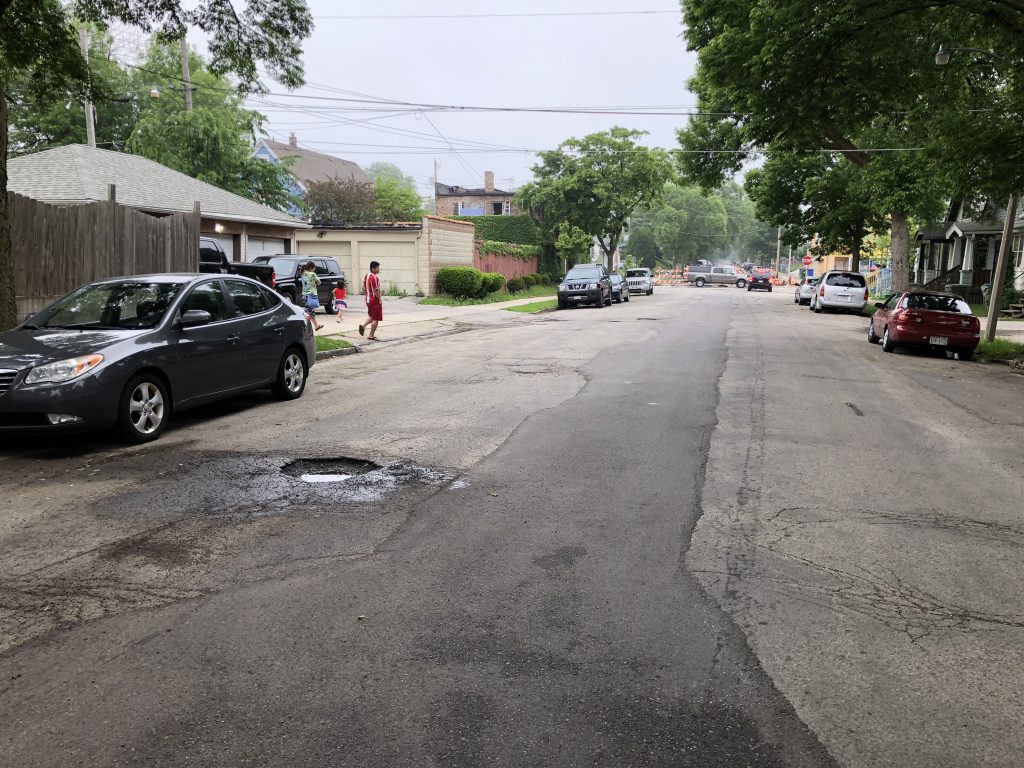Council Might Pump Brakes on Mayor’s Proposed Wheel Tax Increase
Finance chair says delaying vote gives city residents a voice.
Mayor Cavalier Johnson‘s proposed 2026 city budget includes a request that the council act fast on adopting a $10 increase to the city’s $30 vehicle registration fee (VRF).
Johnson wants the council to approve the fee weeks before the budget is finalized in late November. The move would allow the fee increase to go into effect earlier, generating more revenue.
But Finance & Personnel Committee Chair Alderwoman Marina Dimitrijevic indicated her intent Friday to block the wheel tax express lane.
“I think there is a democratic process that has to play out and it doesn’t conclude until Nov. 25,” said Dimitrijevic. “There is a process here, and democracy, where we can amend it. It could be $5, it could be $15, it could be $50… I can’t preempt that.”
Ald. Scott Spiker responded that he shared Dimitrijevic’s frustration.
“I think I understand the chair’s annoyance, because I think I share it,” he said.
Council members Peter Burgelis and Milele A. Coggs also indicated some hesitation about adopting the wheel tax increase first.
At stake is $250,000 in potential revenue.
Johnson’s proposed budget calls for $2.75 million in revenue from expanding the wheel tax starting Feb. 1. State statute requires a 90-day notice, which Comptroller Bill Christianson said Wisconsin Department of Transportation officials have defined as Nov. 3 at 3 p.m.
The council isn’t scheduled to vote on the 2026 budget until Nov. 7, with any potential mayoral vetoes being reviewed on Nov. 25. Waiting until Nov. 25 would push the implementation to March 1.
Johnson is asking the council to review the VRF increase at its Oct. 8 finance committee meeting and approve it at the Oct. 14 full council meeting.
But Dimitrijevic and the council have scheduled an Oct. 18 budget hearing at the new Martin Luther King Library branch.
“It would feel uncomfortable and borderline undemocratic to preempt that,” she said.
But that’s what the administration is asking.
“If the council chooses to vote on it later, it will create a hole in the budget given the implementation process with the state,” said budget director Nik Kovac.
Coggs asked why the council wasn’t given more notice. Kovac said members were notified a week before the mayor introduced his budget on Sept. 23.
“This was one of the later decisions we made in the budget,” he said.
Johnson is proposing to close a $101 million structural gap through a combination of fee increases, a property tax increase, reserve withdrawals, and $28 million in departmental service reductions.
Delaying the vote would trigger the need to find another $250,000 in cuts or revenue increases.
“I think we need to come to the middle and figure this out,” said Dimitrijevic.
“The mayor cooked a budget with a hole in it,” said Spiker, who has been the most vocal critic of the mayor’s $2.07 billion proposal.
“It was not intentional,” said Kovac. He said his office continues to learn about timing nuances. He suggested without the month of revenue, the council could vote to raise the property tax levy to avoid a service cut.
Spiker said that wasn’t an “automatic” solution to “a problem we didn’t create.”
Dimitrijevic said she would like to see a full list of options presented Wednesday at the finance meeting.
About the wheel tax
The fee was created in 2008 and increased to $30 in 2021. Increasing it to $40 would put Milwaukee in line with six other cities, including Madison and Evansville. City residents must also pay the Milwaukee County fee, $30, and any state fees.
State law does not impose a limit on local vehicle registration fees, but fees must not exceed the amount expended on the related service.
Kovac said the city could increase the fee many times over before it would generate revenue on par with the city’s road expenditures.
The 2026 budget calls for a record $98.5 million, including state and federal support, in street spending.
But Burgelis noted that local road spending, which the city must do without outside support, would go down. “We’re increasing the wheel tax, but spending less on local roads,” he charged.
The 2025 budget provided $18 million, which the 2026 budget would reduce to $16.7 million.
Kovac said the mayor had proposed $12 million in 2025, only for the council, led by Burgelis, to increase it to $18 million. Both totals were achieved primarily with borrowing.
“Really, we should be talking about debt service from prior years, not future borrowing, to describe that,” said the budget director. “It’s not linked.”
“That was entertaining. We saw you write each other’s press releases,” said Spiker.
Kovac said his office doesn’t issue press releases. But it will spend dozens of hours over the next month defending items in the mayor’s budget. It appears the wheel tax might be on the top of the list.
If you think stories like this are important, become a member of Urban Milwaukee and help support real, independent journalism. Plus you get some cool added benefits.
Political Contributions Tracker
Displaying political contributions between people mentioned in this story. Learn more.
- May 7, 2015 - Nik Kovac received $10 from Cavalier Johnson
City Hall
-
Council Blocked In Fight To Oversee Top City Officials
 Dec 16th, 2025 by Jeramey Jannene
Dec 16th, 2025 by Jeramey Jannene
-
Latest Effort to Adopt New Milwaukee Flag Going Nowhere
 Dec 3rd, 2025 by Jeramey Jannene
Dec 3rd, 2025 by Jeramey Jannene
-
After Deadly May Fire, Milwaukee Adds New Safety Requirements
 Dec 2nd, 2025 by Jeramey Jannene
Dec 2nd, 2025 by Jeramey Jannene
Transportation
-
Congestion Pricing Cuts Air Pollution in New York City
 Dec 14th, 2025 by Jeff Wood
Dec 14th, 2025 by Jeff Wood
-
FTA Tells Milwaukee to Crack Down on Fare Evasion — Even Where Fares Don’t Exist
 Dec 12th, 2025 by Graham Kilmer
Dec 12th, 2025 by Graham Kilmer
-
Will GOGO’s Bus Service Ever Get Going?
 Dec 9th, 2025 by Jeramey Jannene
Dec 9th, 2025 by Jeramey Jannene






















